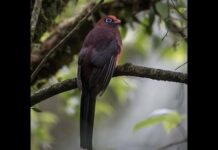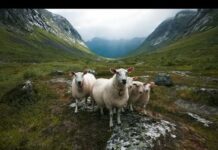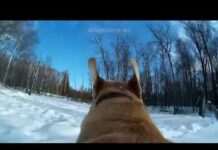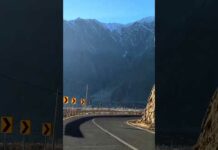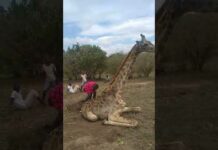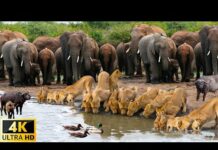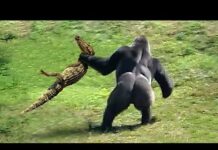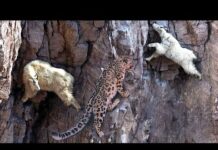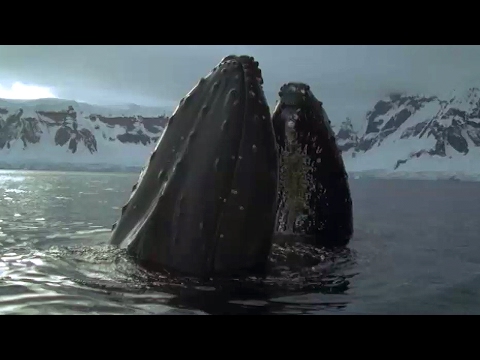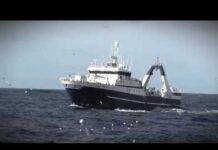Fur seals, and whales feast on billions of krill. A chance to see fantastic images of the most abundant whales in the Southern Oceans, Minke Whales, and the awe-inspiring Humpback Whales that also visit the freezing Southern Seas in the summer
Taken From Blue Planet Series 1
Subscribe to the BBC Earth YouTube channel: http://bit.ly/BBCEarthSubBBC Earth YouTube Channel: http://www.youtube.com/BBCEarth
BBC Earth Facebook http://www.facebook.com/bbcearth
BBC Earth Twitter http://www.twitter.com/bbcearth
BBC Earth Instagram https://www.instagram.com/bbcearth/?hl=en
Visit http://www.bbc.com/earth/world for all the latest animal news and wildlife videos
This is a commercial channel from BBC Studios. Service & Feedback https://www.bbcstudios.com/contact/contact-us/
minke whales make their way into these placid waters in summer this is the most abundant whale in the southern ocean Ming keys are one of the smallest before the baleen whales and like all others they come here to feed.
the majestic humpback whales mom also some visitors they have traveled thousands of miles from their winter breeding grounds and topics to gather the food that becomes available here in summer in just four months they accumulate enough fat to provide them with energy.
For the whole of the rest of the year all these animals have come here in search of one thing the krill krill is the mainstay of the Antarctic food web it occurred in phenomenal quantities millions of individuals in a single swarm and swarms can stretch for miles sad seals also collect this rich superabundant.
Tool crew swarms of an Apache but once found feeding is easy how's that engulfed hundreds of thousands of them in a single gargantuan mouth when the going is good the whales feed continuously each eating up to two tons of growth in 24 hours.
you
We are excited to present to you the captivating video titled “Whales And Seals Devour BILLIONS of Krill | Blue Planet | BBC Earth”. Get ready to embark on a journey of enjoyment, smiles, and laughter as you watch this delightful creation. “Whales And Seals Devour BILLIONS of Krill | Blue Planet | BBC Earth” is a perfect blend of entertainment and amusement, carefully crafted to bring joy to your day. From the moment you press play, you’ll be greeted with a cascade of lighthearted moments, heartwarming scenes, and perhaps even a few surprises that will tickle your funny bone.
Whether you’re in need of a quick pick-me-up or simply looking for some light-hearted entertainment, “Whales And Seals Devour BILLIONS of Krill | Blue Planet | BBC Earth” has you covered. The video promises to deliver a collection of moments that are bound to leave you grinning from ear to ear. With its engaging content and skillful presentation, “Whales And Seals Devour BILLIONS of Krill | Blue Planet | BBC Earth” is more than just a video – it’s an experience designed to brighten your mood and spread positivity.
The creators of “Whales And Seals Devour BILLIONS of Krill | Blue Planet | BBC Earth” have poured their creativity and dedication into crafting a visual treat that resonates with audiences of all ages. Through expert storytelling, impeccable timing, and an array of engaging content, “Whales And Seals Devour BILLIONS of Krill | Blue Planet | BBC Earth” promises to be an unforgettable journey that lingers in your memory long after the video concludes.
So sit back, relax, and prepare to be entertained as you dive into the world of “Whales And Seals Devour BILLIONS of Krill | Blue Planet | BBC Earth”. It’s a delightful video that aims to bring a dose of happiness to your day, leaving you with a lasting smile and a heart full of laughter.
This video was uploaded in youtube and has recieved 1494494 views so far. This is a great achievement and laso it has received 10702 likes and .
Data bout the video:
Rating: ,
Video dimensions: 2d,
Video definition: sd,
Video duration: 00:03:53,
Video favourite count: 0
Video comment count: 392


